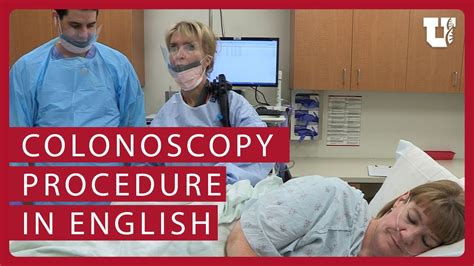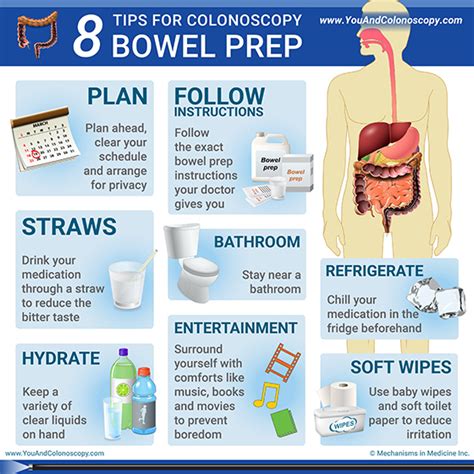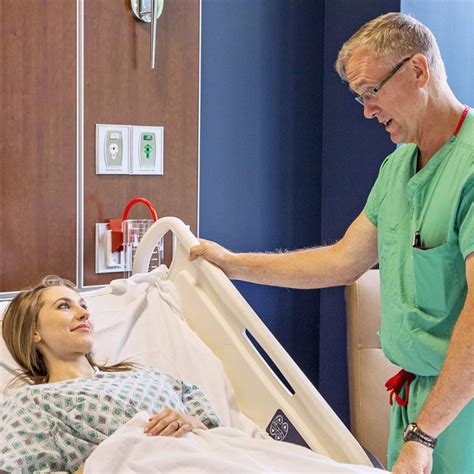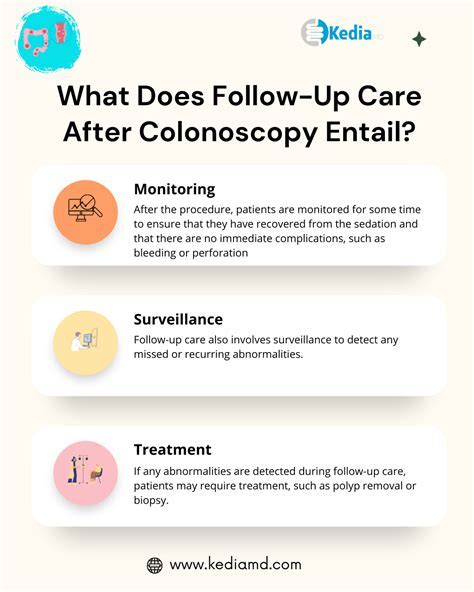Intro
Get ready for a colonoscopy with our expert guide. Learn colon prep tips, bowel preparation methods, and what to expect during the procedure for a smooth and successful colon cancer screening experience.
Preparing for a colonoscopy is a crucial step in ensuring the procedure is successful and that your doctor can accurately diagnose any potential issues with your colon. A colonoscopy is a medical procedure that allows your doctor to visually examine the inside of your colon and rectum for abnormalities such as polyps, cancer, and inflammation. In this article, we will explore the importance of preparing for a colonoscopy, the steps involved in the preparation process, and what you can expect during and after the procedure.
The preparation process for a colonoscopy typically begins a few days before the procedure and involves a combination of dietary changes, bowel preparation, and medication. It is essential to follow your doctor's instructions carefully to ensure that your colon is clean and free of any debris, which can interfere with the visualization of the colon during the procedure. A clean colon allows your doctor to get a clear view of the inside of your colon and rectum, which is critical for accurate diagnosis and treatment.
The importance of preparing for a colonoscopy cannot be overstated. A thorough preparation can help reduce the risk of complications during the procedure, improve the accuracy of the diagnosis, and ensure that your doctor can remove any polyps or abnormal tissue that may be present. Additionally, a well-prepared colon can also help reduce the risk of bleeding or perforation during the procedure, which can be serious complications.
Understanding the Colonoscopy Procedure

A colonoscopy is a relatively simple procedure that involves the insertion of a flexible tube with a camera and light on the end into the rectum. The tube, called a colonoscope, is then guided through the colon, allowing your doctor to visualize the inside of the colon and rectum. The procedure is typically performed under sedation, which helps you relax and reduces any discomfort or pain. During the procedure, your doctor may remove any polyps or abnormal tissue that are found, and may also take biopsies of any suspicious areas.
Benefits of Colonoscopy
The benefits of colonoscopy are numerous. It is a highly effective procedure for detecting and preventing colon cancer, which is one of the most common types of cancer in both men and women. Colonoscopy can also help diagnose other conditions such as inflammatory bowel disease, diverticulitis, and gastrointestinal bleeding. Additionally, colonoscopy can help reduce the risk of colon cancer by allowing your doctor to remove any precancerous polyps that may be present.Preparation for Colonoscopy

The preparation for colonoscopy typically begins a few days before the procedure. Your doctor will provide you with specific instructions on what to eat and drink, as well as any medications you need to take. The goal of the preparation is to clean out your colon and rectum, which involves a combination of dietary changes and bowel preparation.
The dietary changes typically involve a low-fiber diet for a few days before the procedure, which can help reduce the amount of debris in your colon. You may also be instructed to avoid eating any solid foods for a day or two before the procedure, and to only drink clear liquids such as water, broth, or electrolyte-rich beverages like sports drinks.
The bowel preparation typically involves taking a laxative or colonoscopy prep medication, which helps to clean out your colon and rectum. The medication can be taken orally or through an enema, and is designed to stimulate bowel movements and help remove any debris from your colon.
Types of Bowel Preparation
There are several types of bowel preparation that may be used for colonoscopy, including:- Polyethylene glycol (PEG) solution: This is a common type of bowel preparation that involves drinking a large volume of liquid to help clean out the colon.
- Sodium phosphate solution: This type of bowel preparation involves taking a series of tablets or drinking a solution to help stimulate bowel movements.
- Magnesium citrate solution: This type of bowel preparation involves drinking a solution to help stimulate bowel movements and clean out the colon.
What to Expect During the Procedure

During the colonoscopy procedure, you will be asked to lie on your side or back on an examination table. Your doctor will then insert the colonoscope into your rectum and guide it through your colon. The procedure typically takes about 30-60 minutes to complete, and you may feel some discomfort or pressure during the procedure.
Your doctor may also remove any polyps or abnormal tissue that are found during the procedure, and may take biopsies of any suspicious areas. The biopsies will be sent to a laboratory for analysis, and the results will be used to diagnose any conditions or diseases.
Risks and Complications
While colonoscopy is a relatively safe procedure, there are some risks and complications that can occur. These include:- Bleeding: This is a rare complication that can occur if a polyp is removed or if there is a tear in the colon.
- Perforation: This is a rare complication that can occur if the colonoscope punctures the wall of the colon.
- Infection: This is a rare complication that can occur if bacteria enter the colon during the procedure.
- Adverse reaction to sedation: This is a rare complication that can occur if you have an adverse reaction to the sedation medication.
After the Procedure

After the colonoscopy procedure, you will be taken to a recovery room where you will be monitored for any complications. You may feel some discomfort or cramping after the procedure, which can be managed with medication.
Your doctor will also provide you with instructions on what to eat and drink after the procedure, as well as any follow-up appointments or tests that you may need. It is essential to follow your doctor's instructions carefully to ensure that you recover quickly and safely from the procedure.
Follow-up Care
After the procedure, you will need to follow up with your doctor to discuss the results of the colonoscopy. Your doctor will also provide you with instructions on any further testing or treatment that you may need.It is essential to follow up with your doctor as scheduled to ensure that you receive any necessary treatment or follow-up care. Additionally, you should also follow any dietary or lifestyle recommendations provided by your doctor to help reduce the risk of colon cancer and other conditions.
Conclusion and Next Steps

In conclusion, preparing for a colonoscopy is a crucial step in ensuring the procedure is successful and that your doctor can accurately diagnose any potential issues with your colon. By following your doctor's instructions carefully and understanding what to expect during and after the procedure, you can help reduce the risk of complications and ensure that you receive the best possible care.
If you have any questions or concerns about colonoscopy or would like to schedule an appointment, please do not hesitate to reach out to your doctor. Remember, colonoscopy is a highly effective procedure for detecting and preventing colon cancer, and it is essential to take proactive steps to protect your health.
What is a colonoscopy?
+A colonoscopy is a medical procedure that allows your doctor to visually examine the inside of your colon and rectum for abnormalities such as polyps, cancer, and inflammation.
How do I prepare for a colonoscopy?
+To prepare for a colonoscopy, you will need to follow a combination of dietary changes and bowel preparation, which involves taking a laxative or colonoscopy prep medication to clean out your colon and rectum.
What are the risks and complications of colonoscopy?
+The risks and complications of colonoscopy include bleeding, perforation, infection, and adverse reaction to sedation. However, these complications are rare and can be managed with medication and follow-up care.
How long does a colonoscopy take?
+A colonoscopy typically takes about 30-60 minutes to complete, depending on the complexity of the procedure and the number of polyps or abnormal tissue that need to be removed.
What can I expect after a colonoscopy?
+After a colonoscopy, you may feel some discomfort or cramping, which can be managed with medication. You will also need to follow up with your doctor to discuss the results of the procedure and any further testing or treatment that you may need.
We hope this article has provided you with a comprehensive understanding of what to expect during a colonoscopy and how to prepare for the procedure. If you have any further questions or concerns, please do not hesitate to reach out to your doctor. Remember, colonoscopy is a highly effective procedure for detecting and preventing colon cancer, and it is essential to take proactive steps to protect your health.
